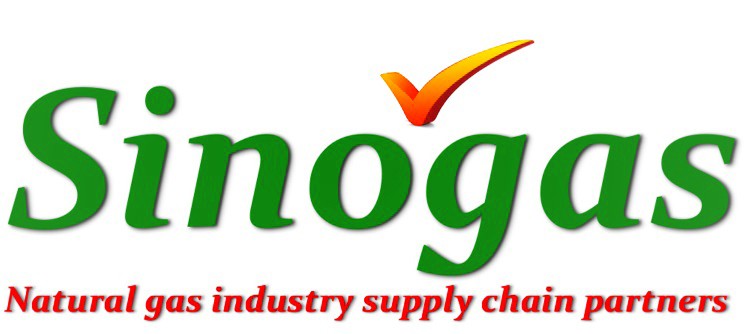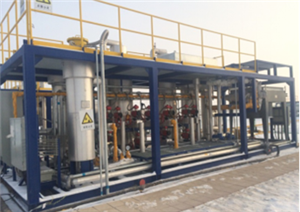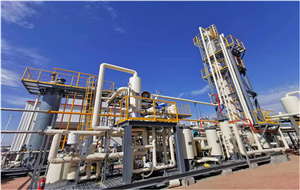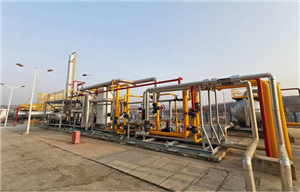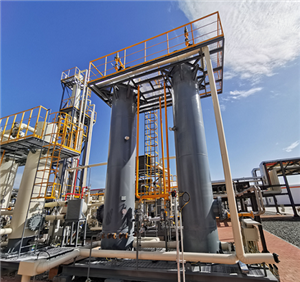Flared Gas to Transit and Haulage CNG Fuel is New Project for Nigeria
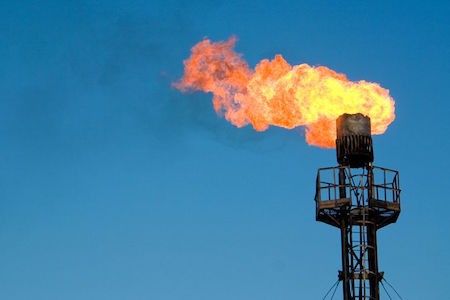
Moves are afoot in Nigeria to power passenger transit services and road haulage with Compressed Natural Gas (CNG). The country introduced CNG several years ago but its profile has remained low while the country imports liquid fuels and flares gas at well sites. Powergas Nigeria, a domestic CNG distribution company and European Technologies for Africa (ETEFA), an Austrian green technology company, are determined to alter the fuel horizon.
Powergas Nigeria and ETEFA are investing in the development of CNG as an alternate fuel for mass-transit and haulage sector in the country. To commence the pilot project of employing “One City Bus and One Truck” initiative, the partners met with key stakeholders to introduce the Clean and Environmentally Sustainable Transportation (CEST) programme.
Several factors are behind the impetus for change. Four of the worst cities in the world for air pollution are in Nigeria, according to data released by the World Health Organization (WHO). The country flares as much gas as it imports diesel and petrol. The National Bureau of Statistics (NBS) has reported that the volume of Premium Motor Spirit (PMS), known as petrol, imported 17 billion litres into the country in 2017.
Gas flaring without ministerial consent has been illegal in Nigeria since 1984. The country has endorsed the UN’s “Zero Routine Flaring by 2030” Initiative and is aiming to have zero flaring accomplished by 2020. With an estimated 188 billion cubic feet of proven natural gas reserve, Nigeria has the ninth largest concentration of the natural resource in the world. In 2017, a government minster stated his country flares more than 75 per cent of the gas produced and re-injects only 12 per cent to enhance oil recovery. Nigeria is seventh on the list of gas flarers (Source: NOAA/GGFR).
With Powergas’ Flare Gas Recovery Project, flared gas will be turned into fuel that can power NGV vehicles. The innovative project aims to provide CNG solutions for vehicles by the provision of RABA G10 gas engines (6-cylinder in-line / 10.3 liter / 160 to 265 kW), which will significantly reduce CO2 emissions on Nigerian roads, along with savings of millions of Naira for the end-users. Vehicle running costs could be cut by 30-40% using CNG.
Speaking at the reception of the CEST Programme hosted at the Austrian Commercial Counsel’s residence, the Chairman of Powergas Africa, Deepak Khilnani, said the project will change the face of transportation in Nigeria. “We are also calling on all stakeholders to join us as we make this technology transfer in utilization of Nigerian Natural Gas for transportation to happen in the next one year.”
The Chief Executive Officer of ETEFA, Johann Rieger, said that “although we have a long way to go because this is new, we are ready to go all the way in proffering frugal energy and transport solutions for Nigeria. Flared gas is a resource that is being wasted today. Tomorrow, this could be a huge potential which can be channeled into fueling different types of vehicles like cars and public transport.”
Powergas was recently awarded the “Best Compressed Natural Gas (CNG) Company in West Africa” by the Governing Board of Nigeria Pension Award in association with Africa Finance Awards and International Brand Award Nominees (IBAN).
According to the EFETA website, by end 2018, Powergas is expected to produce 17,000 cm of CNG | LNG from recovered flare gas. ETEFA has targeted to supply up to 5,000 G10 gas engines to the project per year by 2023.
This project is supported by ADA (Austrian Development Agency) and performed in cooperation with Worldbank’s GGFR.
